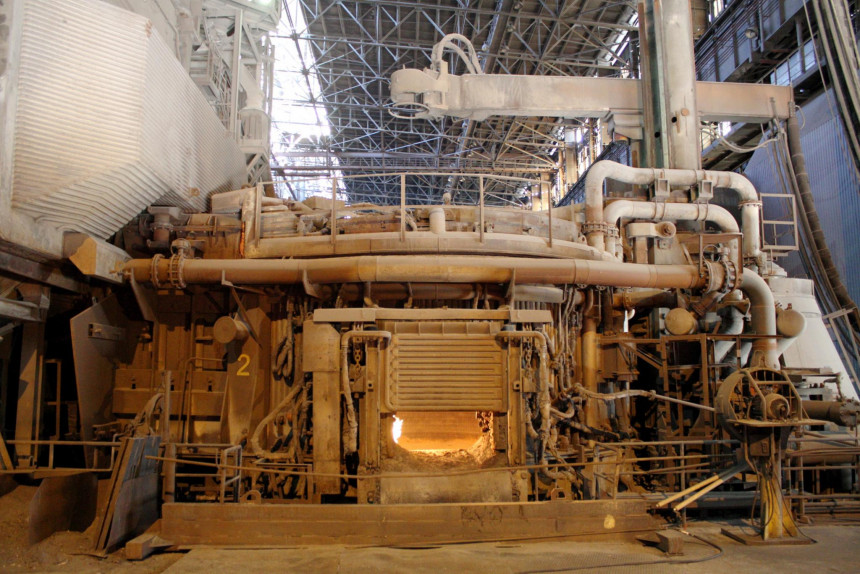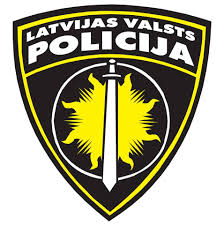The Liepājas Metalurgs furnace still serves to burn money

The Latvian state is trying to sell the furnace of the company Liepājas Metalurgs (LM) for 4.3 million euros, for the construction of which the state paid 67.5 million euros. The total losses of this company are in hundreds of millions of euros.
Today, on November 5, another auction starts, in which the Latvian state will try to get rid of the electric steel melting furnace. Property is offered for the price of 4.3 million euros, for which the Latvian state has paid 67.5 million euros. However, in several such auctions with a similar, seemingly very attractive price no one has applied. The new application is open until noon on December 7.
The Latvian state acquired the furnace by issuing a loan guarantee to a private company Liepājas Metalurgs. The relevant document was signed on December 30, 2009 by Einars Repše, Minister of Finance of the first government of Valdis Dombrovskis. In return, the state received the entire company as collateral and - most importantly - promises from the owners of the company Sergejs Zaharjins and Iļja Segals to employ thousands of Liepāja residents, pay taxes, increase cargo turnover in the port of Liepāja and Latvia's gross domestic product, etc. Out of all this, the country has only acquired the company's property, along with the losses and other problems the were caused and are still being caused by the takeover, maintenance and sale of this property.
Politicians' speeches around the unlit furnace
The state helped LM get a new furnace at a time when the 2008 global economic crisis had demonstrated the unsuitability of the Soviet-era furnace for the production of competitive products. On paper, it sounded very nice - with a new furnace, LM would use the upswing phase of the next economic cycle. Unfortunately, when the promises had to start coming true, suspicions began to arise that something was wrong with LM's new furnace and the whole company. After long disputes, empty promises and legal tricks, the company had to be declared insolvent on November 12, 2013. The version that at least the company's new furnace is the value that will cover most of the losses caused to the state and society by the company's collapse remained valid. It was revealed that the company's total debts exceeded 200 million lats at that time, which corresponds to less than 300 million euros. There were guarantee and tax debts to the state, bank loans, unpaid wages, unpaid bills for electricity, natural gas and scrap metal, etc. It is difficult to imagine how such debts can arise without the abuse of business owners. Police began investigating their transactions without any results in more than eight years. The State Police informed Neatkarīgā about it a few weeks ago. The police response is worth not paraphrasing, but adding it in full to this article.
The version of the valuable furnace was confirmed by the fact that two bidders applied to buy back from the state LM and to resume metal smelting together with its processing in various ways, which LM had previously developed. The agency LETA mentions the statements of E. Repše's successor Andris Vilks on November 3, 2014 that
LM is “a very good example of how it is possible to revive one of the largest state-owned companies in Latvia from an almost hopeless situation”; "It is a very valuable and lasting experience that shows that very difficult things can be done in Latvia", etc. Prime Minister at the time Laimdota Straujuma also expressed herself: "I hope and believe that we will succeed in restoring both the company's good reputation and tax payments to the Latvian state." The main thing here is not the content of what politicians have said, but the date that was just before the 12th Saeima elections, when open political advertising had to end. Then such a method of voter deception was used, which really helped L. Straujuma to form her next government without A. Vilks.
Liquidation after liquidation
The state sold the LM to the Ukrainian company KVV Group. It attached its initials to the LM and, behind the sign of KVV Liepājas Metalurgs, actually lit the metal melting furnace on May 5, 2015, but already on May 19 announced its suspension. It was softened by promises to light the furnace again, but that was not done. Until February 1, 2016, KVV Liepājas Metalurgs continued flatting metal molten in other metallurgical companies instead of smelting steel. Then, until 16 September, the same thing that happened in 2013 was repeated. In the end, the court was forced to declare KVV Liepājas Metalurgs insolvent in the same way as Liepājas Metalurgs. Legally, these are two different companies in liquidation proceedings that have not ended in either case. The insolvency administrator of the LM has been Haralds Velmers since 2013, but three administrators have changed for KVV Liepājas Metalurgs. Current administrator Argita Jaunsleine plans to complete the process next year. The condition for the completion of the process is the sale of the remaining assets of KVV Liepājas Metalurgs, which, contrary to expectations, did not take place this year and may continue next year. On the other hand, H. Velmers cannot complete the insolvency proceedings of the LM before several cases have been resolved in courts.
With regard to KVV Liepājas metalurgs, the case is not even in the hearing process, but preparations are being made for KVV Group and thus also for the claim of KVV Liepājas metalurgs owner Jevgeņijs Kazmins against the State of Latvia at the International Centre for Settlement of Investment Disputes in Washington (USA). The plaintiff considers that the Latvian state has deceived him by selling not only a financially bankrupt, but a technically unusable company as a real company. He demands the return of the first installments to the Latvian state for the company and demands to reimburse the expenses for futile attempts to light the faulty furnace, etc. These claims amount to EUR 30 million. Such preparations have been dragging on for three years now, and this month there will be another deadline for hearing the case, which may be missed again. Whatever the outcome of the 30 million, three or more million for the lawyers and legal personnel on both sides are guaranteed.
Scrap and scrap metal
It is difficult to find arguments as to why the real value of the now offered melting furnace would be higher than the value of the scrap metal, from which the dismantling costs of the furnace have to be deducted. It would be a wonderful surprise if the results of the auction were to prove otherwise. Previous failures to sell the furnace for operation on site have led to the presentation of the current offer as movable property with a total of 413 units, which are currently located in real estate at Brīvības Street 94 and Brīvības Street 92A in Liepāja. These activities are carried out by the state-owned brass plate company SIA FeLM, i.e. a company whose sole function is to send offers to potential buyers of the furnace and to receive their offers to buy it. Prior to FeLM, such activities were tried by A. Jaunsleine's predecessors as administrators of KVV Liepājas Metalurgs. They found this activity too hopeless or too expensive - more expensive than they could get for the furnace. Therefore, they handed over the furnace to the state, whose financial and power resources allow it to cover or conceal the losses that the state has caused to itself.
It will hardly ever be possible to compile an exhaustive and reliable amount for the losses that have occurred, say, from the moment when E. Repše signed the guarantee to the LM. It is clear that they account for hundreds of millions of euros. Many losses are indirect. For example, all Latvian taxpayers also had to pay extra for the LM administrator to litigate with the KVV Liepājas Metalurgs administrator. Latvians will still have to raise money to give large retirement pensions for many decades to the police officers who have earned these pensions through work as described in the State Police report presented here. It should also be taken into account that the scandals with the LM have damaged the image of Latvia, but it is not possible to calculate at what point investors have turned away from Latvia or residents of other countries have treated Latvians unfavorably.
Authentic

Criminal proceedings initiated on 21.08.2012 at the Economic Crime Department of the Main Criminal Police Department of the State Police according to belonging to a criminal offense group object in accordance with Chapter 18 of the Criminal Law, considering the application of the shareholder of JSC Liepājas Metalurgs regarding possible illegal actions on the part of the responsible officials of the mentioned company during the period from 2002 to 2012, by misusing their powers, misappropriating the company's funds and other assets, as a result of which JSC Liepājas Metalurgs, the applicant and other shareholders of the company were caused material damage.
On 04.03.2013, the criminal proceedings were qualified according to Section 179, Paragraph three and Section 196, Paragraph two of the Criminal Law.
The criminal proceedings were terminated on 27.12.2016 on the basis of Section 377, Paragraphs 1 and 2 of the Criminal Procedure Law. No person has appealed the decision.
Before the termination of the mentioned criminal proceedings, on 07.01.2015, based on Section 391, Paragraph two, Clause 3 of the Criminal Procedure Law, the criminal proceedings were divided by separating materials and initiating new criminal proceedings after the signs of a criminal offense provided for in Section 177, Paragraph three of the Criminal Law regarding possible fraudulent activities within the framework of a transaction between JSC Liepājas metalurgs and foreign companies. A pre-trial investigation is currently ongoing in this criminal proceeding. There are no persons entitled to a defense in the criminal proceedings, as well as no decisions have been made to seize the property of any natural or legal person.
Respectfully,
Gita Gžibovska
Specialist of the Public Relations Department of the State Police